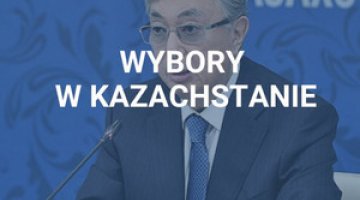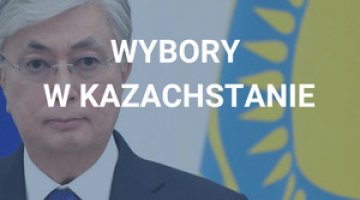Tokayev consolidates his position: parliamentary elections in Kazakhstan
On 27 March, the Central Election Committee issued the official results of the elections
to the 98-member lower house of Kazakhstan’s parliament (the Majilis) held on 19 March. They were won by the ruling Amanat party (which was known as Nur Otan until March 2022), which is the political instrument of President Kassym-Jomart Tokayev (it received 53.9% of the vote, which translated into 62 seats). The new parliament will also include the Aq Jol Democratic Party of Kazakhstan (with 8.41% of the vote, 6 seats) and the former Communist Party (6.8% support, 5 seats) as the ‘concessionary’ opposition, as well as the other groupings: the Auyl party (10.9% of the vote, 8 seats), the Nationwide Social Democratic Party (5.2% of the vote, 4 seats) and the newly registered Respublica Party (8.6% support, 6 seats).
From the single-mandate districts (SMDs) 29 deputies entered parliament, overwhelmingly representing the Amanat party (22 seats). None of the non-partisan candidates who had openly criticised President Tokayev entered parliament from the SMDs. Turnout was 54.2%, significantly lower than that recorded in the previous Majilis elections in January 2021 (63%).
According to the OSCE’s initial, critical opinion, the elections were held under conditions of obstruction for the non-systemic opposition (any groups contesting the current system of government were consistently prevented from registering as political parties). The election campaign was held under conditions of media domination by the ruling camp, and was assessed as lacking real competition or debate. However, the OSCE said that the elections did contribute to a minimal increase in the competitiveness of the party-parliamentary system. There were sporadic and low-volume demonstrations in major cities on voting day.
Commentary
• The course and outcome of the elections represent a fundamental success for Tokayev. The new parliament will be dominated by the pro-presidential Amanat. The five other parties give the apparent impression of greater pluralism: their representatives, however, are members of a broadly defined power elite which is loyal to Tokayev. For this reason, the Majilis should not, even to a limited extent, be expected to balance the president’s dominant role in Kazakhstan’s political system. However, the newly-elected lower house may become a kind of ‘safety valve’, providing an outlet for public tensions over social issues, thus avoiding further protests that might undermine the stability of the system. The absence of major demonstrations (due to the preventive detentions of activists), and the generally smooth conduct of the vote testify to the state apparatus’s loyalty to Tokayev. In contrast, the low turnout (for example, in the traditionally opposition-friendly city of Almaty) indicates a tacit acceptance of the current authorities, as well as the public’s sense that it has little influence on politics.
• These elections, held under a revised, mixed electoral law, did not lead to a real overhaul of Kazakhstan’s political system; they merely contributed to Tokayev’s further consolidation of power, and marked an end to the symbolic reforms of the state’s institutions which the current president initiated. These came in response to the bloody protests of January 2022, during which (according to official figures) 238 people were killed. Among other things, the crisis led to the marginalisation of the position of the first president Nursultan Nazarbayev and his entourage, that is, his family and the oligarchs associated with him. This brought about a strengthening of Tokayev’s presidency, which subjugated the institutional structures of the state to itself. The changes he introduced, which were supported by a narrative of controlled democratisation, were primarily aimed at winning him social legitimacy, consolidating the political elite around him (including by removing representatives of Nazarbayev’s closest circle and stripping his family of immunity) and stabilising the political system. The elections to the facade Majilis – which were preceded by a constitutional referendum in June, early presidential elections in November 2022 and indirect elections to the Senate this January – have allowed Tokayev to strengthen his influence among Kazakhstan’s ruling elites.
• In the near future, there will probably be a consolidation of the current president’s immediate entourage, which may also bring a piecemeal government reshuffle. We may also expect the continuation of measures depriving the so-called ‘Nazarbayev family’ of assets and reducing its political influence (for example, by legislative initiatives requiring proof that its members’ assets are held legitimately). At the same time, the authorities will focus their activity on improving the living conditions of the population (especially in rural areas) and validating the ethnically Kazakh part of the public. Finishing off the subordination of the state structures will strengthen Tokayev and make him the country’s unquestionable leader, in the face of growing international challenges in the aftermath of Russia’s attack on Ukraine. However, the way in which these changes have been carried out prompts scepticism about how willing to carry out a deeper liberalisation of Kazakhstan’s political system Tokayev really is.



